- Home
- Anne Hampson
South of Mandraki
South of Mandraki Read online
SOUTH OF MANDRAKI Anne Hampson
It was literally to save her life that Daros Latimer had married Toni Freeman. The ancient Cretan law of vendetta, under which a man must kill anyone who damages the honor of his family, had brought her into mortal danger from Daros’s crazed old grandfather — and the only way Daros could save her was to make her a member of his own family.
As Daros was handsome, charming and very rich, Toni might well have done worse for herself — except that she cared no more about him than he did about her. Moreover, Daros had the traditional Greek male's idea of a wife as nothing more than a servant and a chattel, and he had made his opinion of independent English women very plain.
What chance of success did such a marriage have?
CHAPTER ONE
Toni Freeman sat at her usual table in the taverna, watching the dancers as she waited for her lunch to be served. Apart from Androula, who helped her father run the cafe, Toni was the only woman present.
‘I hate coming into these cafes,’ her friend had complained when, a couple of years previously, she and Toni had spent a holiday in Greece. ‘On every man’s face I see the light of hope!’ Toni merely laughed and her friend had added, ‘If they so love to feast their eyes on the female figure then why the dickens don’t they bring their own women out?’
A year later, her appetite whetted for more of Greece, Toni had successfully applied for a post in Crete where her uncle, having married a Greek girl after the war, was permanently settled. The proprietor of the hotel in which she worked had persistently tried to date her, but fortunately she had soon found a less amorous boss in the owner of a travel agency, where both her English and Greek were put to good use.
Toni was now familiar to the men frequenting Pavlos’s cafe and, delighted with her knowledge of their language, they would invariably draw her into their conversation.
Just as Androula appeared with her lunch a young Cretan sat down at Toni’s table and she smilingly returned his greeting.
‘The barbouni looks good,’ observed Savvas. ‘I think I’ll settle for that.’ He threw his newspaper down on the table and a headline caught Toni’s eye. ‘Saw it happen,’ said Savvas unconcernedly.
‘You did?’ Her eyes opened wide with horror. ‘But how awful!’
‘It was the vendetta. The man walked into the cafe where I sat, and plunged a knife into the youth’s back. It was all over in a matter of seconds.’
Toni shuddered. On first hearing about the vendetta she had been astounded that so barbaric a custom could survive in a country like Greece. But it did survive, both in Mani and in Crete, and although enlightened judges were determined to stamp it out they were having to tread warily when dealing with so old and established a custom. Nevertheless, sentences were now imposed, whereas at one time the vendetta was accepted and killers went free.
Her eyes scanned the column under the headline. Glavcos, the killer, had recently learned that twenty years earlier the youth’s grandfather had killed one of Glavcos’s relatives, and Glavcos promptly set out to exact vengeance, for ‘the blood must be drawn’.
‘It’s not civilized, Savvas. Why do you keep it up?’
He shrugged.
‘Many of us don’t believe it to be right, but unfortunately there are also those who still do - mainly older people who are still steeped in tradition. And so the custom remains strong in many villages.’
‘It’s quite incredible to me that it can’t be immediately stopped. After all, Greece is the country one associates with the beginnings of western civilization, yet this custom’s so primitive.’
‘A relic of paganism, obviously.’ Savvas clapped his hands imperiously, in the manner of all Greek men, to attract Androula’s attention. She was already trying to take two orders at once and she inclined her head in a gesture of apology at having to make Savvas wait. ‘Civilized we might have been, and cultured, but we were pagans, remember.’
Toni frowned, still unable to accept the fact that a man could look upon killing as a duty. Her eyes wandered to the dancers. They were performing the pendozalis, a war dance originally danced by armed men. Fascinated, she watched, deciding there were still occasions when the paganism of ancient Greece was revealed.
Savvas laughed at her expression and said,
‘Such a beautiful face should never wear a frown.’ The compliment went unheeded. Toni had never yet met a Greek who was not a glib flatterer.
‘My thoughts make me frown.’ She picked at her fish, the
mental vision of the scene witnessed by Savvas quite putting her off her food. ‘If I were a judge here I’d impose very long sentences; that’s the only way to put a stop to the custom.’
‘Why should a man receive a severe prison sentence when he’s sent by his family to do the killing? - when he truly believes he’s carrying out his duty?’
‘I can understand, in a way,’ Toni admitted reluctantly after some thought. ‘But obviously this custom must be stamped out.’
‘It will take a long time.’ He paused to give his order to Androula. ‘Do you know there are those who believe vengeance should be exacted even if the killing is accidental?’
She looked appalled. ‘Then they must be fanatics!’
‘With a custom like this there are bound to be fanatics,’ returned Savvas, and Toni was still thinking about this as she left the cafe, little knowing that she herself would soon be involved in the primitive vendetta of Crete.
It was three weeks later when, having locked the shop door and walked over to her car, she was approached by a man and asked for a lift. He was Greek, and after a brief inquiry as to his destination she smilingly opened the door. She would have to go out of her way, but she did not mind, for the man was very old. ‘You work at Mr. Petrou’s travel agency?’
‘Yes.’ She had to smile. Even in the large town of Heraklion everybody knew everyone else’s business. ‘You like this island?’ ‘Very much indeed.’
‘My grandson lives in Rhodes. That is a very beautiful island. Have you ever been there?’
‘No; it’s a treat in store.’ Toni slowed down at the traffic lights; they changed before she actually reached them and she accelerated again. ‘Have you always lived in Heraklion?’ she asked, eyeing his vragas for a second. The young men never wore this dress nowadays, but the very old men asserted they were far more comfortable than trousers.
‘I come from a village far from here; it’s very remote - cut off from civilization, you might say.’
‘You like living in Heraklion?’
‘I’m used to it now.’
The conversation continued on these casual lines until the small cubic house was reached.
‘You’ll take some refreshment with me?’ The question Toni had expected and she uttered a little sigh of resignation. So much for her plans! She had intended having a long evening in, catching up with chores and letter-writing. But the Greek hospitality, so spontaneous and sincere, must never be refused.
‘Thank you very much. Will the car be all right here?’
‘Bring it in a little further, and then you can turn off your lights.’
He preceded her up the steps and opened the door, telling her to go into the sitting-room while he made the refreshments.
‘You live alone?’ Toni walked into the room indicated.
‘Quite alone. My wife is dead and all my children are married.’ He went off and she glanced around her. The usual heavy furniture and bric-a-brac; ikons on the wall and embroidery on the chairs. Her eyes caught a shape on the wall from which something had been removed ... and then her glance went to the table, and to the dagger lying there, sheathed yet somehow ominous. A frown had settled on her brow when at last the old man entered, carrying a tray. He put
it down, but as she reached for one of the tiny cups of Turkish coffee he brushed her hand aside, giving her the other.
‘This has less sugar,’ he hastened to explain. ‘The English don’t like too much sugar.’
She was suddenly alert, noticing the fire in the old man’s eyes. It was a strange thing, but never before had she experienced so much as a hint of fear when in the company of a Greek, even though he be young. Yet now, with this very old man she felt, to say the least, definitely uncomfortable.
‘Aren’t you sitting down?’ He was too close, tall and thin, nostrils flared and lips drawn tight.
‘Drink your coffee!’
The cup was already to her lips, but she replaced it on the saucer.
‘I don’t think I’ll stay, after all,’ she said coldly as, rising, she made for the door.
‘It’s locked.’
Slowly she turned, and looked at him. At home in England Toni was considered fearless by her friends, and capable of dealing with any situation, coming as she did from a long line of military men, dauntless fighters among whose decorations was the coveted Victoria Cross. Toni’s inherent courage was reflected in every line of her lovely face; it was reflected in her steadfast gaze and in the coolness of her voice as she said,
‘I don’t know what your intention is, but I assure you I can protect myself. Open the door, please.’
A small silence and then, softly, ‘I’m going to kill you.’
Another silence. Toni’s gaze went automatically to the table. ‘You’ll have to explain. You don’t even know me.’ Not the least sign of fear in her softly-modulated voice. The man was very old; it never occurred to her that his strength could possibly surpass hers.
‘You’ve lived on this island for more than a year, I believe.’ The man stood by the chair she had just vacated, his thin gnarled hands moving convulsively.
‘That’s correct.’
‘Then you’ve heard of the vendetta?’
‘Certainly I’ve heard of the vendetta. But how can that concern me? You’ve made a mistake - picked on the wrong person.’
‘Your name’s Antonia Freeman?’
‘Yes.’ Her brow wrinkled in puzzlement. ‘I’ve just said you don’t know me.’ She examined his features. ‘And I’m very sure I don’t know you.’
‘Your brother was on holiday here a couple of months ago?’
Her face paled slightly. She recalled what Savvas had said, and as she brushed the hair from her forehead she found a dampness already collecting there.
‘He came to visit me, yes.’
‘He killed my sister - my old crippled sister!’
‘It was an accident, not a deliberate killing. My brother was cleared in a matter of minutes by your court here.’
‘By the court, yes, but not by me! It was careless driving, and as I can’t get to England to kill him it will have to be you! It’s my duty, according to the vendetta, to draw the blood of the murderer or one of his family!’
So here was one of the fanatics of whom she and Savvas had spoken. The man’s mind was obviously failing; Toni spoke with genuine regret.
‘I admit it was unfortunate about your sister, very unfortunate indeed. But she stepped out into the road - a very dark road, remember - without the slightest warning. And as she was dressed entirely in black my brother did not see her.’
‘We often walk in the road, and our women are always in black - the old ones-you know that.’
‘But my brother didn’t know. How could he, when he had only just arrived? Believe me,’ she continued in gentle tones, ‘even though he was exonerated he still has it on his conscience. In all his letters he regrets having come to the island. And my father and mother - they are also still dreadfully upset by the accident.’ Her green eyes clouded as she thought of the blight that had come to her family through the action of the old cripple in stepping out, right in front of the car which Hugh had only a few hours earlier hired. As Toni had said, both he and his parents were still feeling most unhappy about it. As for Toni herself, scarcely a day passed without the unfortunate occurrence intruding into her memory.
‘They’ll be more upset at their daughter’s death! You’re going to die - by the knife!’
She glanced at the cup on the tray.
‘I would have preferred to render you unconscious, being a woman, but it’s of no matter. It will not hurt for long. I’ve killed many pigs and sheep and I never let them suffer longer than was necessary.’ His eyes shone with a sort of evil anticipation.
‘Afraid? I’ve just told you it won’t hurt for long.’
‘It won’t hurt at all,’ she began, then broke off as, guessing at her intention, the old man snatched up the dagger, being closer to the table than she. He was endeavouring to remove it from its sheath and she decided to act, closing with him and at first taking him by surprise at her show of strength. But he soon recovered and as the seconds passed Toni was made to acknowledge that his appearance was deceptive. His body might be old, his brain fast decaying, but his muscles were still strong. Fully aware of how deep went the roots of this sadistic custom, Toni knew there would be no drawing back on the man’s part.
Although fully aware she faced death, she felt a sort of incredulous astonishment when at last she owned to the man’s superior strength. It was demonstrated as they struggled, and in this dire situation pictures of the various members of her family flitted through her mind. With the coolness that comes when the brave face up to the inevitable Toni viewed each one separately, imagining their reactions on hearing of her death. Hugh, carrying forever the weight of guilt, for he was indirectly responsible; her mother, who would never recover from the shock. Fleetingly Toni recalled, through her half-dazed state of exhaustion, how her mother had begged her not to go abroad, especially to the East. So many dangers lurked there, she had warned ... and Toni had laughed and told her not to be silly! Then there was Pam, Toni’s widowed sister, and the children. Rogues, they were, but Toni loved them dearly. David was nine, Robbie eight and Louise seven, and their father had been dead over two years. Lastly there was Toni’s father, whom she adored. His most recent letter ... so depressing it was, leaving Toni with a permanent drag in the pit of her stomach. His business, once so prosperous, was being swamped by the multiple store newly opened on the opposite side of the street. Bulk buying was his only salvation, he had written, and for that a capital of around five thousand pounds was required.
These glimpses of her family were cut out by the flash of the dagger before her face, the man having managed to withdraw it from its sheath. Seizing his wrist, Toni held the knife away from her heart, but her ears were drumming and her strength ebbed rapidly. Frustrated by her helplessness, she made a desperate effort to escape the depths of finality that were fast dragging her down, but moral strength would not serve in these circumstances. Physical supremacy was required, and Toni was no match for a man so crazed with the lust to kill.
She felt she must soon lose consciousness, and in fact everything had become blurred when through the numbness of her senses she heard voices on the other side of the door, and with one last effort she managed to send the man reeling back against the couch.
‘Father — my father! Open up and let us come in!’ The words were in Greek, but of course Toni understood them.
‘Grandfather!’ English this time, spoken in an imperious tone, the tone of a man expecting instant obedience to his command. ‘Open this door!’ Yet the speaker did not wait; with a sound of splintering wood the door swung inwards. The dagger was snatched from the old man’s hand, but neither of the newcomers took the slightest notice of Toni who, breathless and utterly spent, sank into the nearest chair.
‘Thank God we arrived in time!’ Bursting into tears, the woman flung her arms around her father’s neck. ‘We won’t allow you to get yourself into trouble!’
Toni’s head jerked. The woman’s sole concern was for her father. She cared not a rap for his intended victim!
Twi
sting from his daughter’s embrace, the old man snarled, ‘Daros, how did you get here? And why have you come to interfere?’ The voice was high-pitched and jerky; Toni was more convinced than ever that the man was feeble-minded. Did his relatives know this? It was more than likely.
‘Mother sent for me immediately she learned of your intention. I came at once, but neither of us realized we were cutting it as fine as this until we met Louis outside and he said the car standing there must belong to the girl you intended to kill.’
‘Louis?’ The old man looked bewildered.
‘He knew you’d discovered the whereabouts of the sister. There was gossip that you meant to be revenged, so he instantly got in touch with Mother.’
‘Louis, my trusted friend!’
‘He had your interests at heart. Like us, he wanted to keep you clear of trouble.’ The voice, vibrant and abrupt, was yet patient in its sternness. The man might have been speaking to a fractious child. ‘As Mother says, we shall not allow you to endanger yourself. Aunt Sophia’s death was an accident and you must forget all about revenge.’ He spoke in Greek and Toni knew that they all took it for granted she did not understand their language.
‘You had no right to send for Daros!’ The old man had not been listening to his grandson, for his voice quivered with determination as he added, ‘I must kill the girl. Her brother murdered my sister. The blood shall be drawn!’
‘It was not murder.’ Daros spoke in the same quiet tones, and with the same tolerant inflection. ‘Aunt Sophia stepped into the road; the young man didn’t have a chance.’
On hearing this Toni raised her head, and examined the man’s dark features. The reserve and dignity portrayed on his face were unmistakably English, but the excessive leanness, the hard lines that gave the impression of having been cast in stone ... these spelled the inflexibility and arrogance that could only be attributed to his Greek ancestry. His father was English, Toni concluded as, still ignored by them all, she leant back in her chair, silent onlooker of an unreal scene. Daros returned the dagger to its sheath, which he kept in his hand.
‘I’m not interested in the details of what you term an accident,’ said the old man. ‘Something inside me says I must kill this girl.’ His eyes were like glowing coals; clearly his obsession bordered on insanity.

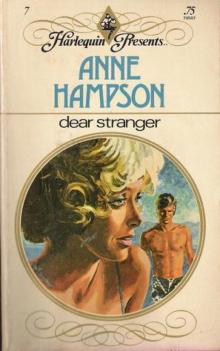 Dear Stranger
Dear Stranger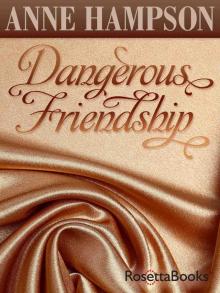 Dangerous Friendship
Dangerous Friendship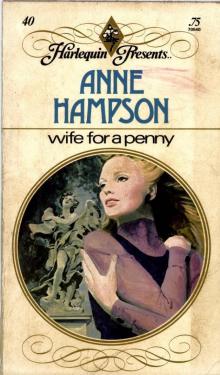 Wife for a Penny
Wife for a Penny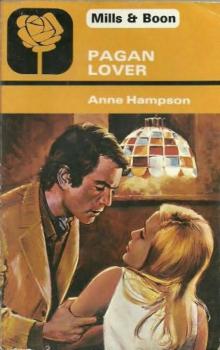 Pagan Lover
Pagan Lover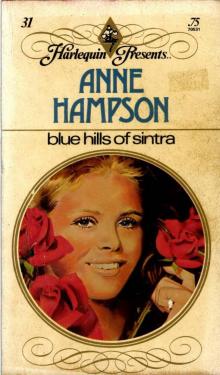 Blue Hills of Sintra
Blue Hills of Sintra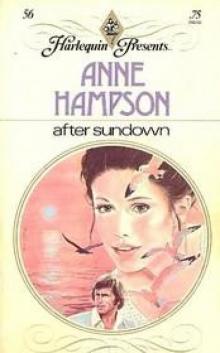 After Sundown
After Sundown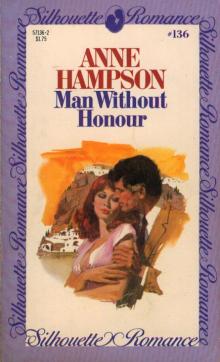 Man Without Honour
Man Without Honour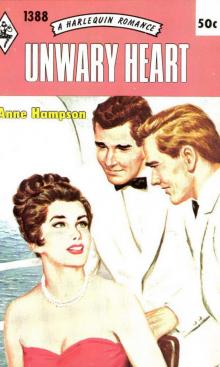 Unwary Heart
Unwary Heart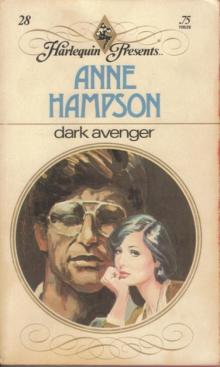 Dark Avenger
Dark Avenger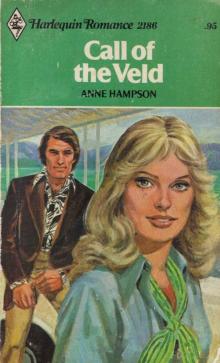 Anne Hampson - Call of The Veld
Anne Hampson - Call of The Veld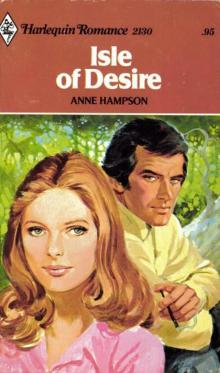 Isle of Desire
Isle of Desire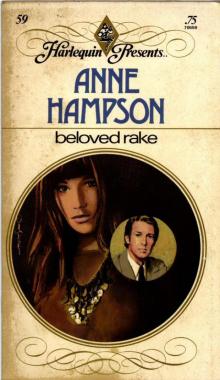 Beloved Rake
Beloved Rake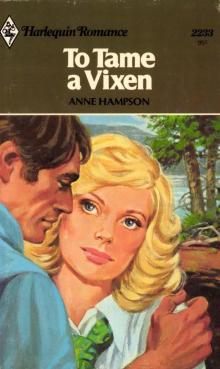 To Tame a Vixen
To Tame a Vixen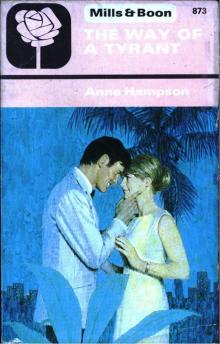 The Way of a Tyrant
The Way of a Tyrant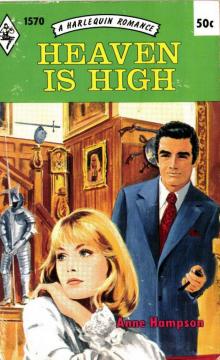 Heaven is High
Heaven is High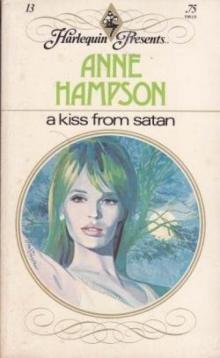 A Kiss From Satan
A Kiss From Satan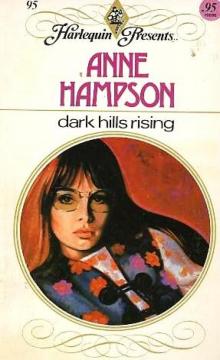 Dark Hills Rising
Dark Hills Rising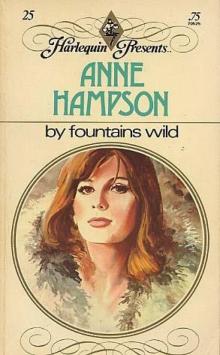 By Fountains Wild
By Fountains Wild Second Tomorrow
Second Tomorrow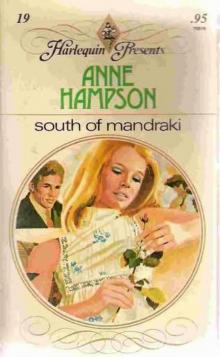 South of Mandraki
South of Mandraki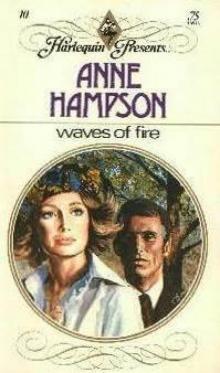 Waves of Fire
Waves of Fire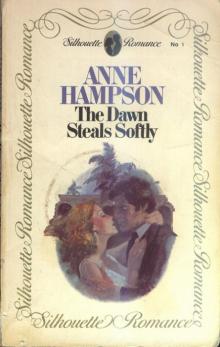 The Dawn Steals Softly
The Dawn Steals Softly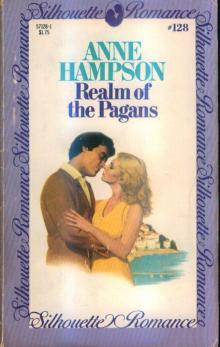 Realm of the Pagans
Realm of the Pagans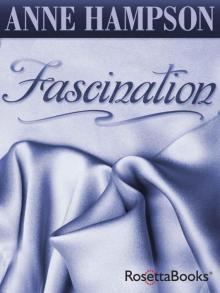 Fascination
Fascination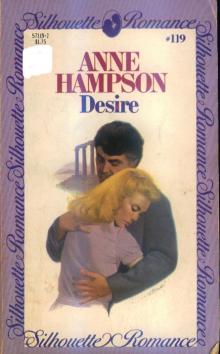 Desire
Desire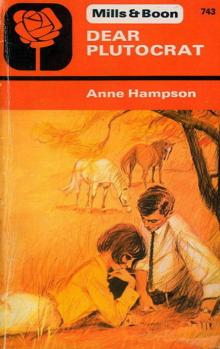 Dear Plutocrat
Dear Plutocrat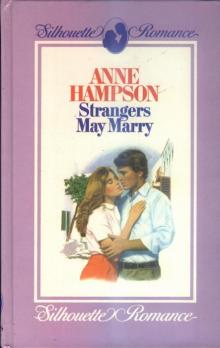 Strangers May Marry
Strangers May Marry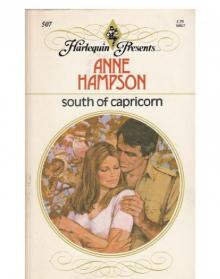 South of Capricorn
South of Capricorn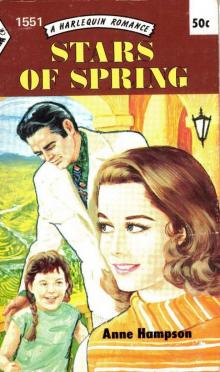 Stars of Spring
Stars of Spring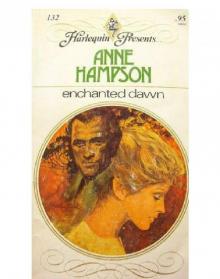 Enchanted Dawn
Enchanted Dawn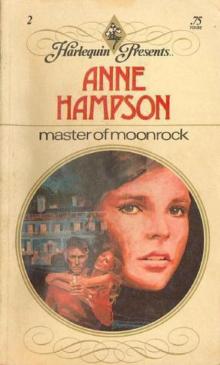 Master of Moonrock
Master of Moonrock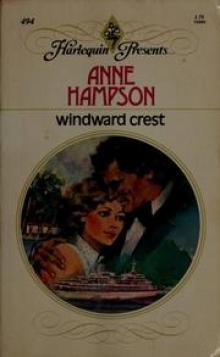 Windward Crest
Windward Crest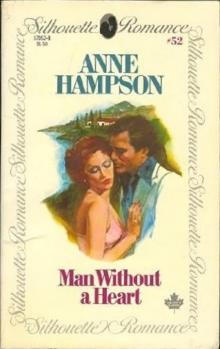 Man Without a Heart
Man Without a Heart